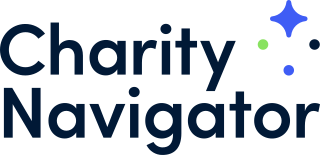Related Research Articles
A nonprofit organization (NPO) or non-profit organization, also known as a non-business entity, or nonprofit institution, is a legal entity organized and operated for a collective, public or social benefit, in contrary with an entity that operates as a business aiming to generate a profit for its owners. A nonprofit is subject to the non-distribution constraint: any revenues that exceed expenses must be committed to the organization's purpose, not taken by private parties. An array of organizations are nonprofit, including some political organizations, schools, business associations, churches, social clubs, and consumer cooperatives. Nonprofit entities may seek approval from governments to be tax-exempt, and some may also qualify to receive tax-deductible contributions, but an entity may incorporate as a nonprofit entity without securing tax-exempt status.

A charitable trust is an irrevocable trust established for charitable purposes. In some jurisdictions, it is a more specific term than "charitable organization". A charitable trust enjoys varying degrees of tax benefits in most countries and also generates goodwill. Some important terminology in charitable trusts includes the term "corpus", referring to the assets with which the trust is funded, and the term "donor," which is the person donating assets to a charity.
The Charity Commission for England and Wales is a non-ministerial department of His Majesty's Government that regulates registered charities in England and Wales and maintains the Central Register of Charities. Since the 2000s, governance of charities in the United Kingdom has been devolved; operating in other parts of the country are the Office of the Scottish Charity Regulator and the Charity Commission for Northern Ireland.
A foundation is a type of nonprofit organization or charitable trust that usually provides funding and support to other charitable organizations through grants, while also potentially participating directly in charitable activities. Foundations encompass public charitable foundations, like community foundations, and private foundations, which are often endowed by an individual or family. Nevertheless, the term "foundation" might also be adopted by organizations not primarily engaged in public grantmaking.
The voluntary sector, independent sector, or civic sector is the realm of social activity undertaken by organizations that are non-governmental nonprofit organizations. This sector is also called the third sector, community sector, and nonprofit sector, in contrast to the public sector and the private sector. Civic sector or social sector are other terms for the sector, emphasizing its relationship to civil society. Richard Cornuelle coined the term "independent sector" and was one of the first scholars to point out the vast impact and unique mechanisms of this sector. Given the diversity of organizations that comprise the sector, Peter Frumkin prefers "non-profit and voluntary sector".

A charitable organization or charity is an organization whose primary objectives are philanthropy and social well-being.
A 501(c) organization is a nonprofit organization in the federal law of the United States according to Internal Revenue Code and is one of over 29 types of nonprofit organizations exempt from some federal income taxes. Sections 503 through 505 set out the requirements for obtaining such exemptions. Many states refer to Section 501(c) for definitions of organizations exempt from state taxation as well. 501(c) organizations can receive unlimited contributions from individuals, corporations, and unions.

A community interest company is a form of social enterprise in the United Kingdom intended "for people wishing to establish businesses which trade with a social purpose..., or to carry on other activities for the benefit of the community".

Charity Navigator is a charity assessment organization that evaluates hundreds of thousands of charitable organizations based in the United States, operating as a free 501(c)(3) organization. It provides insights into a nonprofit's financial stability, adherence to best practices for both accountability and transparency, and results reporting. It is the largest and most-utilized evaluator of charities in the United States. It does not accept any advertising or donations from the organizations it evaluates.
Laws regulating nonprofit organizations, nonprofit corporations, non-governmental organizations, and voluntary associations vary in different jurisdictions. They all play a critical role in addressing social, economic, and environmental issues. These organizations operate under specific legal frameworks that are regulated by the respective jurisdictions in which they operate.
A 501(c)(3) organization is a United States corporation, trust, unincorporated association or other type of organization exempt from federal income tax under section 501(c)(3) of Title 26 of the United States Code. It is one of the 29 types of 501(c) nonprofit organizations in the US.
Candid is an information service specializing in reporting on U.S. nonprofit companies. In 2016, its database provided information on 2.5 million organizations. It is the product of the February 2019 merger of GuideStar with Foundation Center.
The Charity Commission for Northern Ireland is the independent regulator of Northern Ireland charities. It was established in 2009 under the Charities Act (NI) 2008.
A charitable organization in Canada is regulated under the Canadian Income Tax Act through the Charities Directorate of the Canada Revenue Agency (CRA).

Student Senate for the California Community Colleges (SSCCC) was a task force established in 1988 by the Board of Governors of the California Community Colleges. SSCCC was originally known as the "Council of Student Body Governments" and then later as the "Student Senate".
AotearoaNew Zealand Festival is a multi-arts biennial festival based in Wellington New Zealand that started in 1986. Previous names are the New Zealand International Festival of the Arts, New Zealand International Arts Festival, New Zealand Arts Festival and New Zealand Festival of the Arts. The festival is produced every two years and runs across three weeks in venues in Wellington City and outreach programmes in the region. The festival features both international and national acts from performing arts and music with a literary programme also.

The Charities Regulator is the operational name of the Charities Regulatory Authority, the statutory authority responsible for the regulation of charities in Ireland. The organisation is made up of a board, with four sub-committees, and as of 2019, a staff of 38, including a chief executive.

Otaki Museum, housed in the former Bank of New Zealand building in Ōtaki, has as its main purpose the preservation and sharing of Ōtaki's history.
The National Institute for Social Development is the organization in charge of registering and monitoring nonprofit organizations in Mexico. There has been a steady increase in the number of charitable organizations registered since the 1990s. As of December 2017, INDESOL had registered a total of 38,363 charitable organizations.
References
- ↑ "Restrictions on Foreign Funding of Civil Society - IJNL Vol. 12 Iss. 3". www.icnl.org. Archived from the original on 2013-04-15.
- ↑ https://charitycommission.punjab.gov.pk/